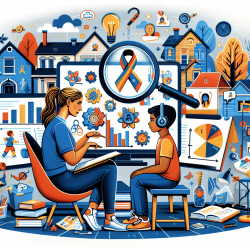Introduction
Endometriosis is a chronic inflammatory disease affecting approximately one in ten women globally. Despite its prevalence, there is a significant gap in understanding the lived experiences of women with endometriosis, particularly in low- and middle-income countries like Kenya. A recent study titled "Living with Endometriosis: A Narrative Analysis of the Experiences of Kenyan Women" sheds light on the challenges faced by Kenyan women with this condition. This blog aims to translate the findings of this research into actionable insights for practitioners, encouraging them to enhance their skills and contribute to improved health outcomes.
Understanding the Kenyan Context
The study, conducted in partnership with the Endo Sisters East Africa Foundation, involved 37 women aged 22 to 48 from Nairobi and Kiambu, Kenya. Through narrative analysis, three key themes emerged: stigma and disruption to quality of life, barriers to acceptable healthcare, and reliance on self-efficacy and social support. These themes highlight the urgent need for improved social awareness and healthcare pathways for endometriosis in Kenya.
Implementing Research Outcomes
For practitioners, understanding these themes is crucial in developing effective interventions. Here are some actionable steps based on the study's findings:
- Enhance Awareness: Educate communities about endometriosis to reduce stigma. Incorporate menstrual health education in schools to promote early recognition of symptoms.
- Improve Healthcare Access: Advocate for better training of healthcare providers in diagnosing and treating endometriosis. Ensure that healthcare services are geographically and financially accessible.
- Promote Self-Efficacy: Encourage women to advocate for themselves in medical settings. Provide resources and support groups to empower women in managing their condition.
Encouraging Further Research
The study highlights the need for further research into the experiences of women with endometriosis in diverse contexts. Practitioners are encouraged to engage in research that explores the psychosocial impacts of endometriosis and evaluates the effectiveness of interventions aimed at improving quality of life.
Conclusion
By implementing the insights from this study, practitioners can play a pivotal role in transforming the lives of women with endometriosis. Through education, improved healthcare access, and empowerment, we can create a supportive environment that fosters positive health outcomes. To delve deeper into the original research, please follow this link: Living with Endometriosis: A Narrative Analysis of the Experiences of Kenyan Women.










